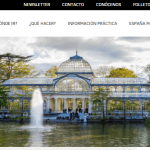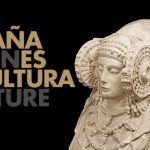SEGITTUR and the Spanish Association for Standardisation (UNE) are on the verge of presenting the new UNE standard 178510:2023 on Smart Tourist Companies (STCs). Requirements and recommendations for its management and transformation will be presented next Wednesday, 24 January 2024, at FITUR Know-How & Export.
This standard, pursued by SEGITTUR and the Secretary of State for Tourism, sets out the requirements, recommendations and indicators applicable to the management, innovation, use of technologies, accessibility and sustainability of a tourism company, for its transformation into a Smart Tourist Company (STC). It is applicable to all types of tourism companies and public services involved in tourism, regardless of the subsector in which their activity is performed, its size, location and nature.
The standard has been developed by the Technical Standardisation Subcommittee CTN-UNE 178/SC5 Smart Tourist Destinations, chaired by SEGITTUR with the involvement of agents including the Institute for Spanish Tourism Quality (ICTE), tourist associations, destinations, companies and regional representatives, who will pursue the development of pilot projects in their territories as part of a public-private collaboration model.
The UNE 178510 standard is aligned with the UNE 178501 standard, which represented a significant milestone in the development of Smart Tourist Destinations (DTI), establishing a management system based on the pillars of governance, innovation, technology, accessibility and sustainability. This successful model has now been extended from destinations to tourism companies, with a view to connecting and generating synergies between them. Thanks to the UNE 178510 standard, companies now have a simple tool that accompanies them in its transition into a smart tourist company.
With this in mind, the UNE 178510 standard follows the same five pillars as Smart Tourist Destinations, highlighting the importance of using data in the decision-making process to promote innovation, efficiency and competitiveness in the tourism industry. Compliance with the criteria established in this standard actively promotes the integration of companies in the smart tourist destinations ecosystem, guiding them in their digital and sustainable transformation.
New rules for smart tourism
In addition to the UNE 178510 standard, two other standards associated with smart tourism have been published in 2023. The UNE 178509 standard Model for the collection, exploitation and analysis of tourism data establishes the basis for defining new processes for the identification, capture, storage, processing, sharing and interoperability of tourism data. The standardisation of internal and external tourism data will allow destinations to speak the same language and help them to better understand and organise their attractions, interact with tourists and make better evidence-based decisions. This management of knowledge and provision of data will offer value to tourism products and services, generating competitive and business intelligence, enhancing the planning and management of the tourist destination.
In turn, the UNE 178511 standard Guide for the implementation of the Smart Destination Platform layer model serves as a benchmark for tourist destinations to steer the acquisition of ICT services towards an interoperable and open, interoperable and compatible digital platform, in future developments, with other domains of action related to smart city or territory services (water management, energy, waste, security, etc.). These requirements focus on a layered smart destination platform model that provides interoperability to the provision of public and private services to tourists; as well as allowing all agents to interact with tourists in a digital, smart and scalable manner.
Spain, leader in tourism standardisation
The collaboration between SEGITTUR and UNE enshrined in the General Action Protocol signed by both institutions to promote the standardisation of the tourism sector. As a result of this cooperation, there are now 11 UNE standards that constitute a homogeneous framework to promote the digitalisation of destinations, in areas such as semantics, connected hotels, the creation of destination websites and applications for mobile devices, to name just a few.





